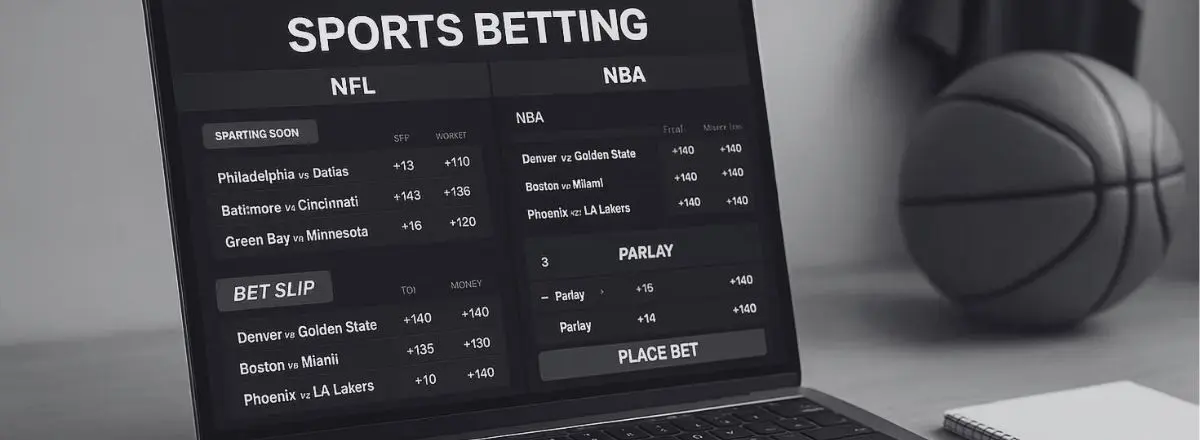It’s that time of year again: Searches for “South Carolina sports betting laws” are trending upward.
This is standard fare in The Palmetto State—and across the rest of the country. People tend to inquire more frequently about sports betting laws during the NFL and college football seasons. These searches will again spike just as betting on March madness reaches its fever pitch.
Results for South Carolina sports betting will be definitive…and also confusing.
Indeed, sports betting in South Carolina remains illegal. A bill that would rewrite The Palmetto State’s gambling laws was presented recently and should still be on the table during the next round of legislative meetings. For the most part, though, South Carolina has shown very little interest in sports betting legalization ever since the Supreme Court of the United States overturned the Professional and Amateur Sports Protection Act back in 2018.
Still, the number of somewhat-sanctioned loopholes to South Carolina’s sports betting laws are on the rise. The same can be said for any number of markets. In The Palmetto State’s case, though, actively allow daily fantasy sports, which many consider just to be sports wagering masquerading as something else.
Bake in the rise of prediction markets or event contracts, as well as the increased presence of sweepstakes casinos, and the South Carolina gambling climate is getting harder for people to understand.
Expert Explains Why People Struggle to Understand South Carolina Sports Betting Climate
David Yancey is an associate registrar of information systems and professor of recreation sport management at Coastal Carolina University. Recently, he spoke with ABC 15 news in Myrtle Beach about why certain gaming types are currently allowed in The Palmetto State.
“While gambling is generally illegal in the state, there are exceptions that create a complex legal landscape: Legal daily fantasy sports through apps like PrizePicks and Underdog and Illegal online sports betting and casino games.
‘Essentially what it did was it told payment providers...think banks, anyone who processes payments that they could not participate in illegal activity...but it made a specific carve out for fantasy sports,’ Yancey said, referring to the Unlawful Internet Gambling Enforcement Act of 2006. Yancey noted that the technology available today has created gray areas in sports betting, such as ‘pick-ems’ through apps like PrizePicks or Underdog, which are permitted in South Carolina.”
The sheer number of exceptions is enough to bend anyone’s brain. Generally speaking, not enough is done to explain the distinction, either. That is another failure.
Basically, though, the key difference between illegal South Carolina sports betting and daily fantasy sports is who you are wagering against. Traditional sports betting sees you gamble against the house—a casino, a sportsbook, a company. In daily fantasy sports, you are entering what they call peer-to-peer transactions. In this instance, you are competing against other players rather than the company offering the DFS service. They instead take a cut of every transaction, which is how they make their money.
Another Exception to Sports Betting in South Carolina is on the Rise
Even more recently, another workaround to South Carolina sports betting laws has entered the mainstream: prediction markets.
Prediction-market operators offer what they call “event contracts.” Essentially these are yes-or-no bets on the outcome of future events. They once upon a time trafficked heavily in politics. Over the past few years, though, they have branched out into sports.
Because these transactions are considered an options contract or closer to purchasing the share of a stock, they are subject to federal regulation rather than state oversight. In effect, this allows them to offer prediction markets for sports without needing a license to provide online sports betting in the United States.
Across many markets, policymakers are attempting to nudge event contracts out of the market. Sports betting regulators typically consider them an outright attempt to flirt the law.
Right now, there is no explicit law or rule that prohibits South Carolina sports prediction markets. It doesn’t necessarily enjoy the same “carve-out” as daily fantasy sites. But it still gives residents of The Palmetto State an alternative to traditional sports betting.
Could the Rise in Alternatives Prompt Deeper Sports Betting Consideration in The Palmetto State?
Proponents of legal South Carolina sports betting argue that the rising number of alternatives and loopholes is bad for the state. Regulated sportsbooks tend to pay higher tax rates to the state. This is especially true for online sports betting sites in the USA.
Certain markets tax these operators at clips well north of 20 percent. Some, like the New York sports betting market, assess rates as high as 50 percent.
There is almost no way South Carolina is able to charge the upper echelon of tax rates. The market size is not big enough. But with fewer “new markets” available, they do have some leverage over sportsbooks. They will have even more if they join states like Nevada, Massachusetts, Ohio, New Jersey and others in attempting to shudder prediction-market operations.
Of course, we have never seen interest from South Carolina lawmakers that suggests their push would ever rise to that level. Then again, while pending legislation isn’t exactly tangible progress, it’s a departure from The Palmetto State’s past.
Could they take another step forward in the process? We will likely find out more when the state legislature reconvenes in the middle of January 2026.
Take a look at this list of the top online sportsbooks so you can find one that works for all of your sports betting needs:
-
EXCLUSIVE BONUS
 50% bonus up to $250Play Now
50% bonus up to $250Play NowT&C apply, 18+, Play responsibly
-
EXCLUSIVE BONUS
 125% up to $1,250Play Now
125% up to $1,250Play NowT&C apply, 18+, Play responsibly
-
EXCLUSIVE BONUS
 225% up to $3,625Play Now
225% up to $3,625Play NowT&C apply, 18+, Play responsibly
-
 50% bonus up to $250Play Now
50% bonus up to $250Play NowT&C apply, 18+, Play responsibly
-
 125% up to $2,500Play Now
125% up to $2,500Play NowT&C apply, 18+, Play responsibly












